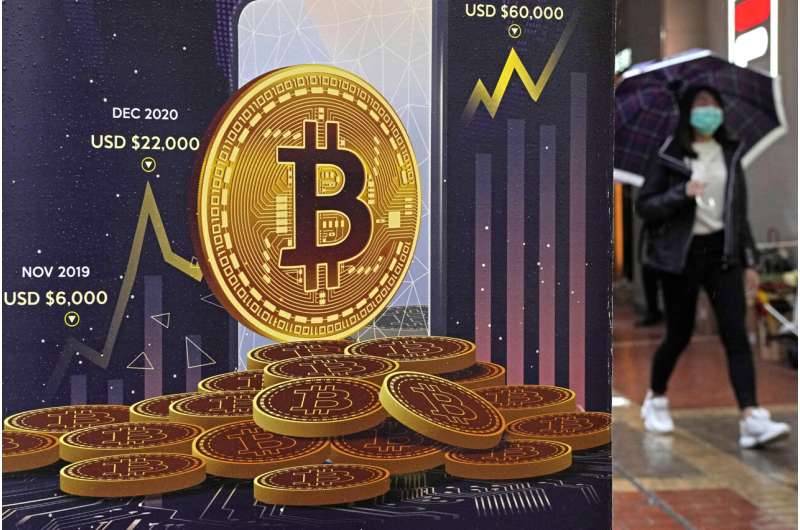An advertisement for Bitcoin cryptocurrency is displayed on a street in Hong Kong, on Feb. 17, 2022. Europe is poised to take the global lead in regulating the freewheeling cryptocurrency industry at a time when prices have plunged, wiping out fortunes, fueling skepticism and sparking calls for tighter scrutiny. European Union negotiators were set to hold talks on Thursday, June 30, 2022, to hammer out the final details in the bloc's sweeping package of crypto rules. Credit: AP Photo/Kin Cheung, File
The European Union has agreed on new rules subjecting cryptocurrency transfers to the same money-laundering rules as traditional banking transfers.
EU negotiators signed a provisional agreement late Wednesday for the 27-nation bloc's first rules on tracing transfers of crypto assets like bitcoin, which is aimed at clamping down on illicit transfers and blocking suspicious transactions.
When a crypto asset changes hands, information on both the source and the beneficiary would have to be stored on both sides of the transfer, according to the new rules. Crypto companies would have to hand this information over to authorities investigating criminal activity such as money laundering or terrorist financing.
"For too long, crypto-assets have been under the radar of our law enforcement authorities," one of the lead EU lawmakers negotiating the rules, Assita Kanko, said in a statement. "It will be much harder to misuse crypto-assets and innocent traders and investors will be better protected."
The EU institutions are working out the technical details before the rules receive final approval. Negotiators also were set to hammer out final details late Thursday on a separate deal for a sweeping package of crypto regulations, known as Markets in Crypto Assets, or MiCA.
They're part of the EU's push to take the global lead in reining in the freewheeling cryptocurrency industry at a time when prices have plunged, wiping out fortunes, fueling skepticism and sparking calls for tighter scrutiny.
Like the EU's trendsetting data privacy policies, which became the de facto global standard, the crypto regulations are expected to be highly influential worldwide.
© 2022 The Associated Press. All rights reserved. This material may not be published, broadcast, rewritten or redistributed without permission.
























